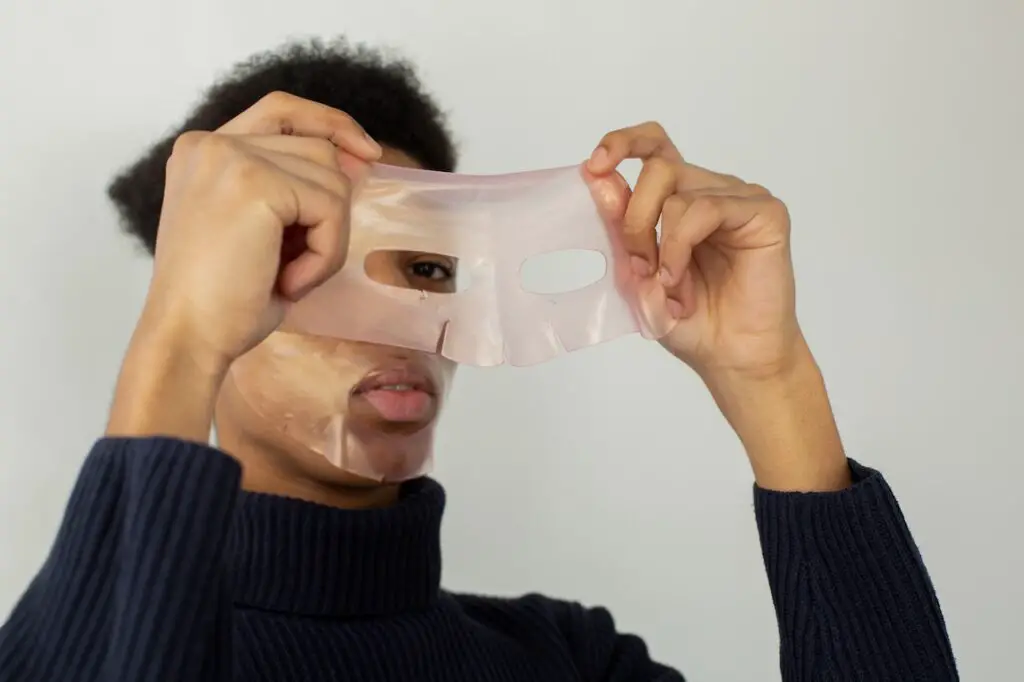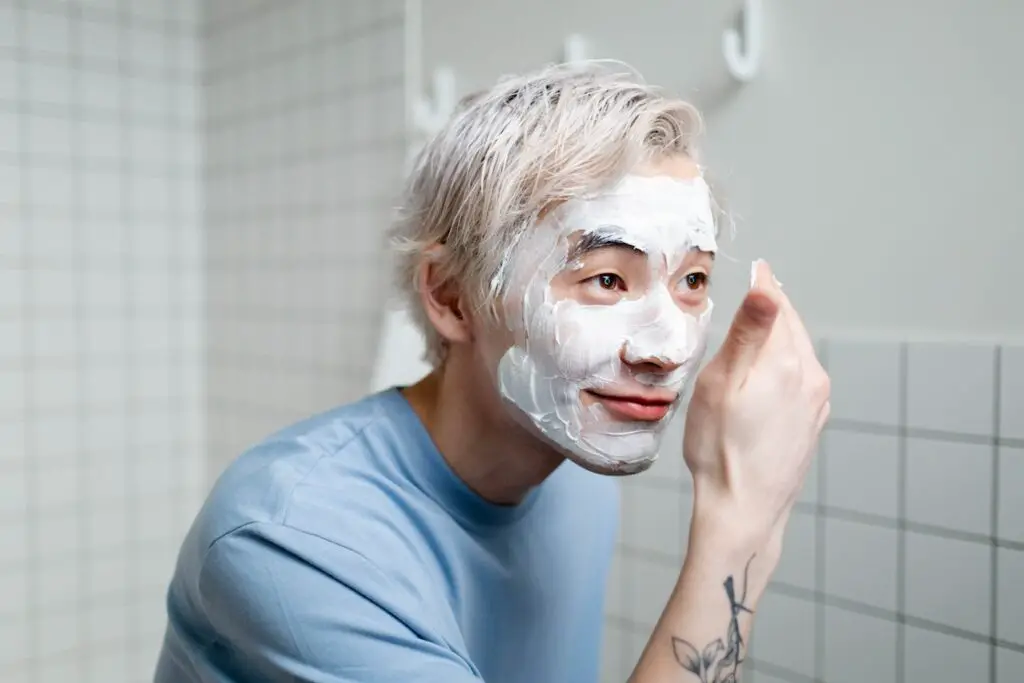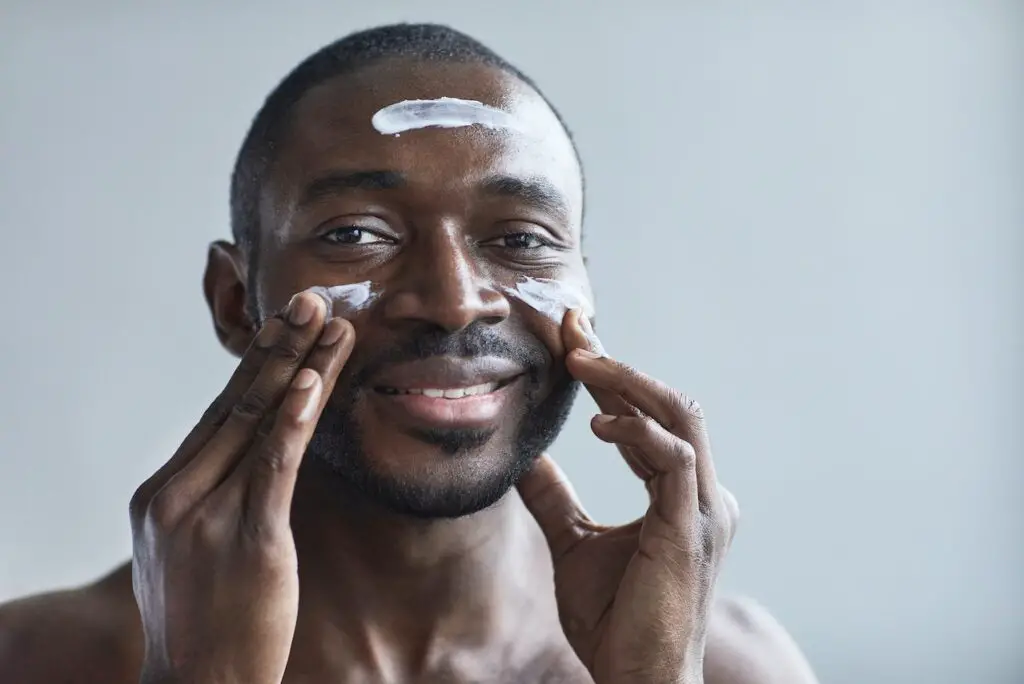If you have oily skin, finding the right grooming products can be a challenge. With so many options on the market, it can be difficult to know which products will work best for your skin type. In this article, we’ll explore the best men’s grooming products for oily skin, including cleansers, moisturizers, and more.
Understanding Oily Skin
Before we dive into the products themselves, it’s important to understand what causes oily skin. Oily skin is the result of overactive sebaceous glands, which produce too much sebum. This excess oil can lead to clogged pores, acne, and other skin problems.
Oily skin is a common skin condition that affects many people, especially during puberty and young adulthood. It occurs when the sebaceous glands in the skin produce too much oil, also known as sebum. This excess oil can lead to a variety of skin problems, including acne, blackheads, and an overall shiny appearance.

Related: The Top 8 Supplements for Skin Health: According To Medical Experts
Causes of Oily Skin
There are several factors that can contribute to oily skin, including genetics, hormonal changes, and environmental factors. People with oily skin often have overactive sebaceous glands that produce too much sebum, leading to an oily appearance.
Hormonal changes can also play a role in the development of oily skin. During puberty, the body produces more androgens, which can stimulate the sebaceous glands and lead to increased oil production. Women may also experience oily skin during their menstrual cycle or pregnancy due to hormonal fluctuations.
Environmental factors such as hot and humid weather, exposure to pollutants, and using harsh skincare products can also contribute to oily skin.
Symptoms of Oily Skin
The most common symptom of oily skin is an overall shiny appearance. People with oily skin may also experience enlarged pores, blackheads, and acne. Oily skin can also feel greasy to the touch and may be prone to developing whiteheads or pimples.

Treatment for Oily Skin
There are several ways to treat oily skin and prevent breakouts. The first step is to adopt a consistent skincare routine that includes gentle cleansing, exfoliation, and moisturization.
When choosing skincare products, it’s important to look for products that are specifically designed for oily skin and are labeled “non-comedogenic,” which means they won’t clog pores. Look for lightweight, oil-free moisturizers and cleansers that won’t leave a greasy residue on the skin.
Cleansers for Oily Skin
The first step in any good skincare routine is cleansing. For oily skin, it’s important to use a cleanser that removes excess oil without stripping the skin of its natural moisture. Look for a cleanser that contains salicylic acid or benzoyl peroxide, which can help to unclog pores and reduce oil production.
Exfoliants for Oily Skin
Exfoliation is an important step in any skincare routine, but it can be especially helpful for people with oily skin. Exfoliating can help to remove dead skin cells, unclog pores, and reduce the appearance of oiliness. However, it’s important to be cautious when exfoliating, as over-exfoliating or using harsh scrubs can actually make oily skin worse.
When choosing an exfoliant for oily skin, it’s important to look for products that are gentle and won’t irritate the skin. Chemical exfoliants such as alpha-hydroxy acids (AHAs) and beta-hydroxy acids (BHAs) are often a good choice for oily skin, as they can penetrate the pores and help to dissolve excess oil and dead skin cells.
Related: The Best Men’s Grooming Products for Acne-Prone Skin
AHAs, such as glycolic acid and lactic acid, work by breaking down the bonds between dead skin cells, allowing them to be easily removed from the skin. BHAs, such as salicylic acid, are oil-soluble and can penetrate the pores, helping to unclog them and prevent breakouts.
It’s important to start slowly when incorporating exfoliants into your skincare routine, especially if you have sensitive skin. Begin by using the exfoliant once a week and gradually increase the frequency if your skin tolerates it. It’s also important to follow the instructions on the product and not leave the exfoliant on for longer than recommended, as this can cause irritation.
Toners for Oily Skin
Toners can help to remove any excess oil or dirt that your cleanser may have missed. Look for a toner that contains witch hazel or salicylic acid, which can help to reduce oil production and tighten pores.
Moisturizers for Oily Skin
Contrary to popular belief, oily skin still needs moisture. However, it’s important to use a lightweight, non-greasy moisturizer that won’t clog pores or contribute to excess oil production. Look for a moisturizer that contains hyaluronic acid or glycerin, which can help to hydrate the skin without leaving a greasy residue.
Sunscreens for Oily Skin
Sunscreen is a must for any skincare routine, but it can be challenging to find one that works well for oily skin. Look for a sunscreen that is oil-free and non-comedogenic, meaning it won’t clog pores.
Clay Masks for Oily Skin
Clay masks are a popular choice for people with oily skin, as they can help to absorb excess oil and impurities from the skin. Clay is a natural ingredient that has been used for centuries in skincare due to its ability to draw out impurities and unclog pores.
Clay masks come in a variety of types, including kaolin, bentonite, and French green clay. Kaolin clay is a gentle option that is suitable for all skin types, while bentonite clay is more absorbent and may be better for oily skin. French green clay is another popular option for oily skin, as it is rich in minerals and can help to detoxify the skin.
When using a clay mask, it’s important to choose a product that is specifically formulated for oily skin. Look for masks that contain ingredients such as tea tree oil, witch hazel, or salicylic acid, which can help to reduce oiliness and prevent breakouts.
To use a clay mask, start by cleansing your skin and patting it dry. Apply the mask to your face, avoiding the eye and lip areas, and leave it on for the recommended amount of time (usually 10-15 minutes). Rinse the mask off with warm water and pat your skin dry.
It’s important not to use clay masks too frequently, as they can be drying to the skin. Once or twice a week is usually sufficient for most people with oily skin. If you experience any irritation or dryness after using a clay mask, reduce the frequency or try a gentler formula.
Related: The Benefits of Tea Tree Oil for Men’s Skincare
Serums for Oily Skin
Serums are a popular skincare product that can be especially beneficial for people with oily skin. Serums are lightweight, fast-absorbing liquids that contain a high concentration of active ingredients, such as antioxidants, vitamins, and peptides, that can help to address a variety of skin concerns.
When it comes to choosing a serum for oily skin, it’s important to look for products that are oil-free or lightweight in texture. Ingredients such as niacinamide, vitamin C, and hyaluronic acid can be particularly helpful for oily skin, as they can help to regulate oil production, brighten the skin, and provide hydration without feeling heavy or greasy.
Niacinamide is a type of vitamin B3 that has been shown to regulate sebum production and improve the appearance of enlarged pores. It can also help to reduce inflammation and redness in the skin. Vitamin C is a powerful antioxidant that can help to brighten the skin and protect against environmental damage. Hyaluronic acid is a hydrating ingredient that can help to plump the skin and provide a lightweight, non-greasy layer of moisture.
When using a serum, it’s important to apply it after cleansing and toning, but before moisturizing. Serums are designed to be used in addition to a moisturizer, not as a replacement. Apply a few drops of serum to your fingertips and gently press into the skin, focusing on areas where oiliness or concerns such as acne or hyperpigmentation are present.
It’s important to choose a serum that is appropriate for your skin type and concerns, and to start slowly when incorporating a new product into your routine. Begin by using the serum once a day, and gradually increase the frequency if your skin tolerates it. If you experience any irritation or breakouts, discontinue use and consult with a dermatologist.
Spot Treatments for Oily Skin
If you’re prone to breakouts, a spot treatment can be a lifesaver. Look for a spot treatment that contains benzoyl peroxide or salicylic acid, which can help to reduce inflammation and unclog pores.
Conclusion
Taking care of oily skin can be a challenge, but with the right products, it’s possible to achieve healthy, clear skin. By incorporating these products into your skincare routine, you can help to control oil production, unclog pores, and prevent breakouts.
FAQs
Can oily skin be caused by diet?
There is some evidence to suggest that a high-glycemic diet can contribute to oily skin. Eating a diet rich in fruits, vegetables, and whole grains may help to improve the skin.
Is it okay to use a moisturizer if I have oily skin?
Yes, it’s important to use a moisturizer even if you have oily skin. However, it’s important to use a lightweight, non-greasy moisturizer that won’t clog pores or contribute to excess oil production.
Can oily skin be cured?
Unfortunately, there is no cure for oily skin. However, with the right products and skincare routine, it’s possible to control oil production and prevent breakouts.
Can oily skin be genetic?
Yes, oily skin can be genetic. If your parents have oily skin, it’s likely that you will too.
Are there any natural remedies for oily skin?
There are some natural remedies that may help to control oil production in oily skin, such as witch hazel, aloe vera, and tea tree oil. However, it’s important to be cautious when using natural remedies, as they may not be as effective as medical treatments.


Pingback: The Importance of Nail Care for Men's Skincare - The Gentlemen Diary